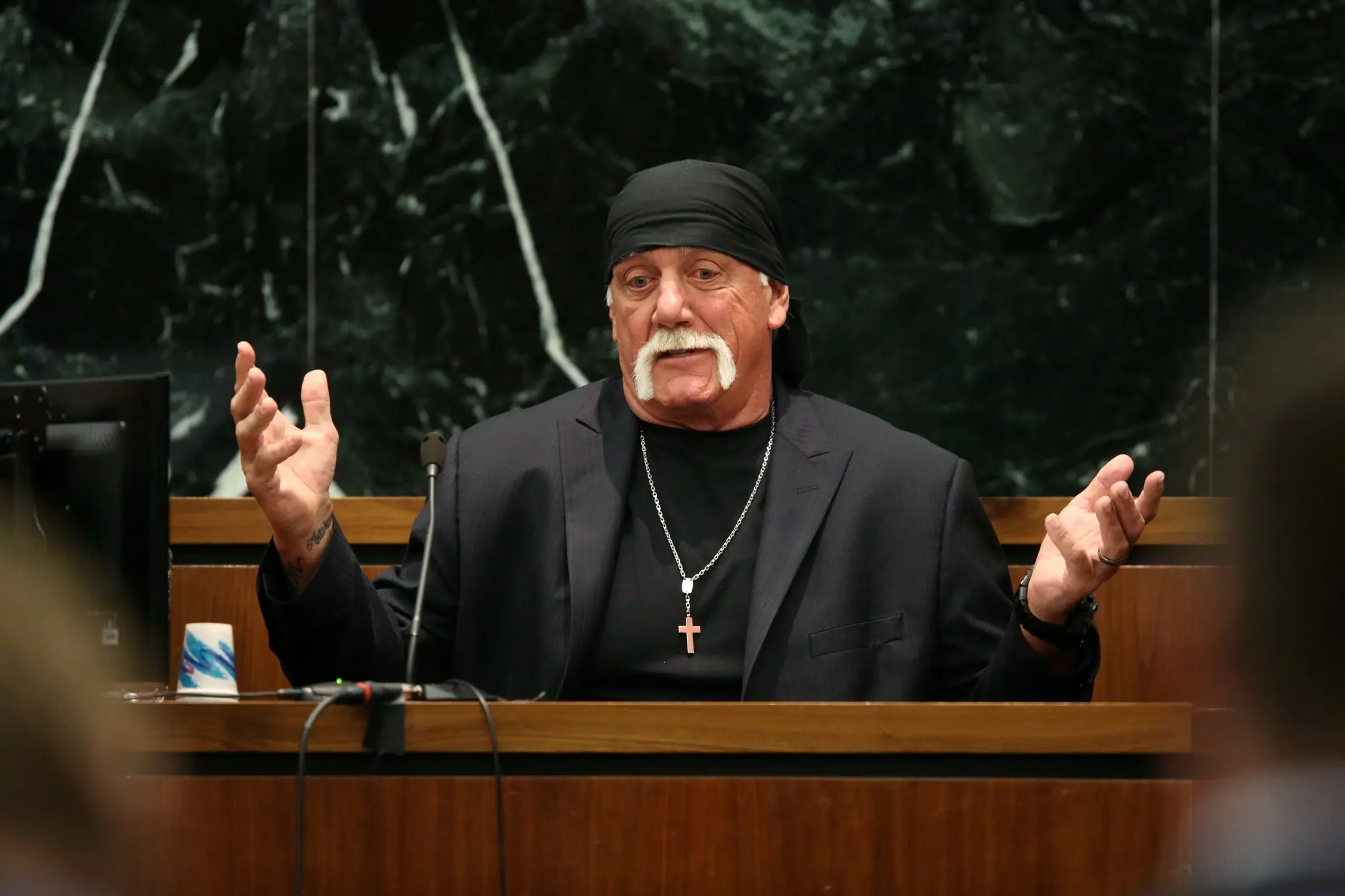Among the 99.99 percent of Americans who are not journalists, Hulk Hogan’s name most likely summons a charming and patriotic cloud of associations: vitamins, “real American,” ripped shirts, leg drops, mustache, pectorals, “brother.” But among our diminishing tribe, Hogan’s wrestling persona falls away, and the man, Terry Bollea, looms larger. Because he — not Hogan — was the plaintiff in an invasion of privacy lawsuit, Bollea v. Gawker, that reshaped the whole landscape of the media business.
The tawdry story begins at some point in or around 2006. Bollea was having trouble in his marriage and was, by his own account, severely depressed. One day, he visited the home of his friend, a Tampa shock jock named Bubba the Love Sponge Clem. Clem invited Bollea to have sex with his wife, Heather. The two apparently had an arrangement. But Clem also had a hidden camera in his bedroom — and what he probably didn’t mention that day was that he was going to burn the footage onto a DVD, label it “HOGAN” with a Sharpie, and leave it in an unlocked drawer.
It took that tape somewhere around six years to reach the Manhattan offices of Gawker Media, in 2012. At the time, Gawker was no longer a gossipy blog for the media elite and those just outside the walls. It was that, plus a news aggregator, plus a tabloid, plus an occasional source of literary essays. It was, without question, the most interesting and unpredictable of the rising class of digital media properties. According to a later report by BuzzFeed News, Gawker’s editor in chief, A.J. Daulerio, used a somewhat circular logic to determine the video had news value: A Hulk Hogan sex tape was fair game because there had previously been reported rumors about a Hulk Hogan sex tape. Consequentially, Daulerio made the decision not just to confirm the tape’s existence and summarize its lurid contents but also to publish a roughly two-minute excerpt from it.
Bollea’s lawyers tried to have Gawker take the video down, but the site refused. In 2013, Bollea sued Gawker — as well as Daulerio and Gawker’s founder, Nick Denton — for invasion of privacy, seeking damages of $100 million. Then, rather than settle the suit, as Gawker seemed to expect he would, Bollea spent years pursuing justice through the courts before finally winning at trial in 2016. In the end, the court ordered Gawker to pay $140 million in damages, forcing the company into bankruptcy. Its flagship site was eventually revived under different ownership, then shuttered again in 2023. (Daulerio’s inciting post no longer exists, not even in the Internet Archive; the one apparently faithful copy I could find had been pasted contemporaneously on a message board connected to a boating lifestyle brand in Lake Havasu City, Ariz.)



